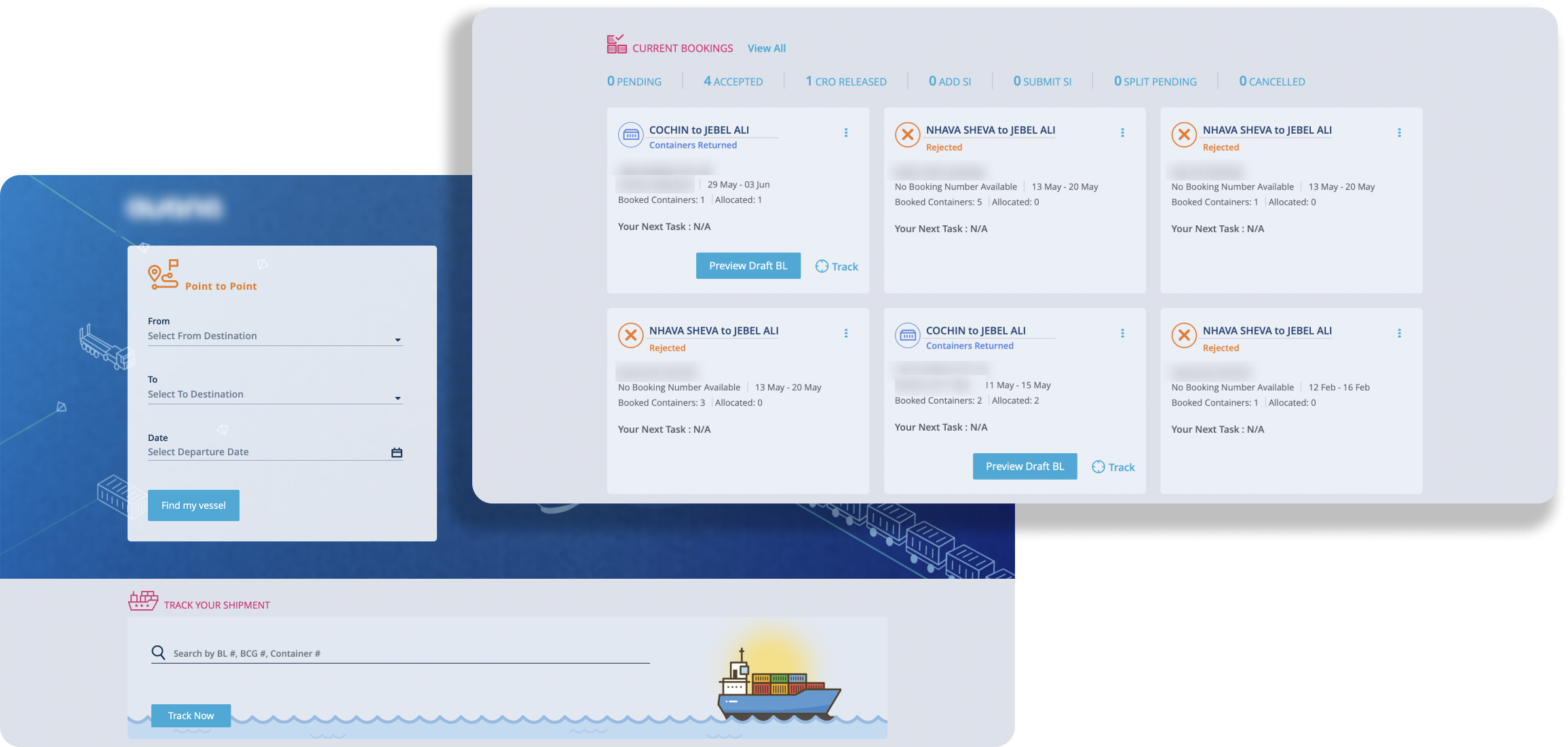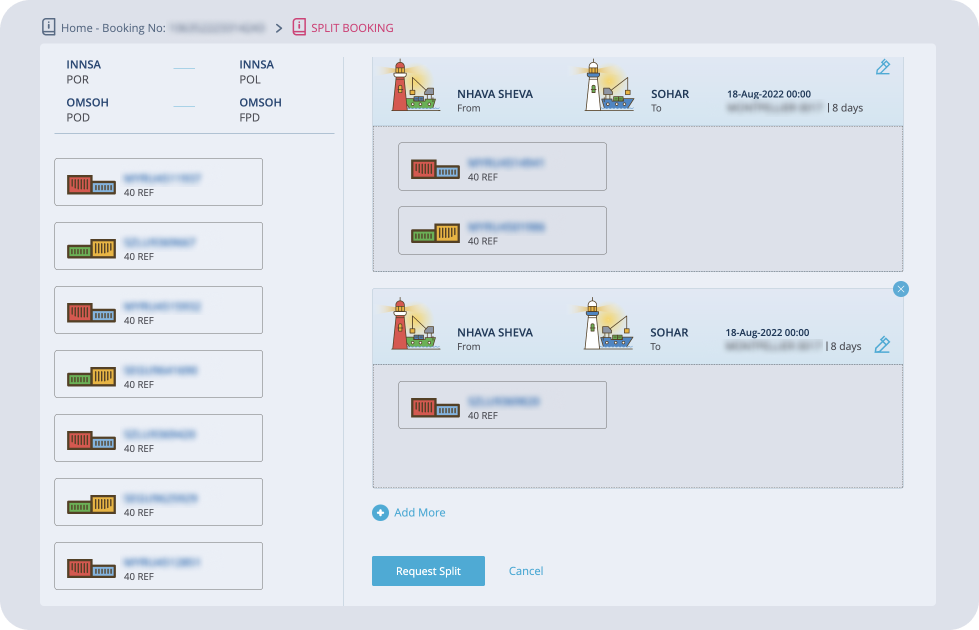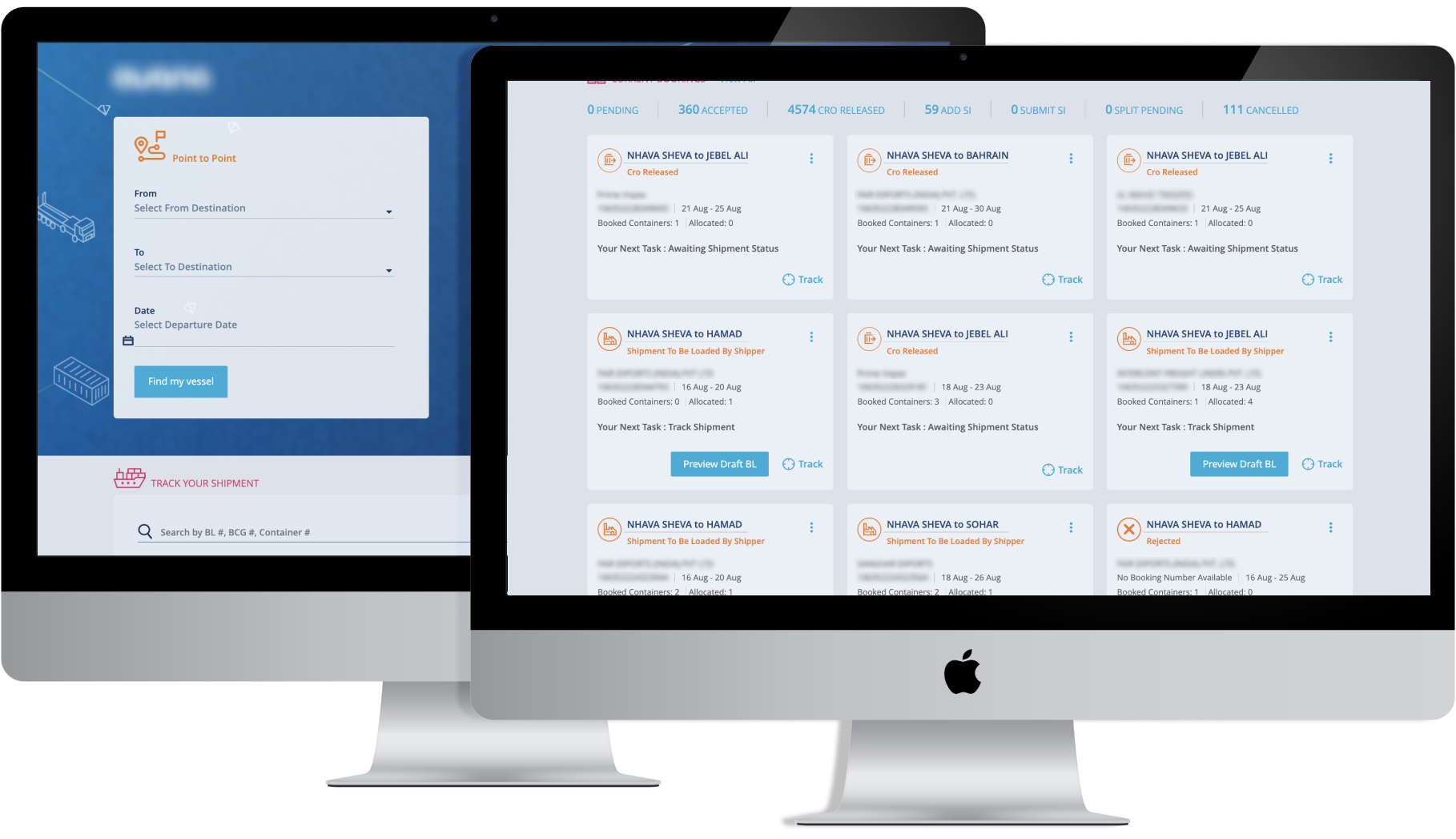Many of the bookings that the customers did were repeat bookings. So a copy booking feature was imperative in order to save time on booking creation
One of the most complex features that were supposed to be implemented as shipping instructions. Shipping instructions are the details entered against each container with respect to the goods that are supposed to be shipped. An elegantly designed user interface to ease the laborious entry of data was extremely important.
Many of the customers of our client used to place blanket orders of several containers. Once the container was allocated, they used to then split the allocated containers across multiple bookings. It is a complex business process that was supposed to be meticulously designed and implemented
Tracking, booking statuses, filtering, customer onboarding and access rights - were the other significant features that were supposed to be part of the solution.
One of the architectural challenges was to integrate the application with their database-based ERP; a legacy ERP that was hosted on the private data centre. Yet another key ask was that - once the client moves its operations to OTM (Oracle Transport Management) the same customer portal must seamlessly integrate with OTM APIs.
The application was supposed to be highly-available, concurrent, reliable and fast and also, was supposed to adhere to the standards and principles of modern-day dev-ops.




